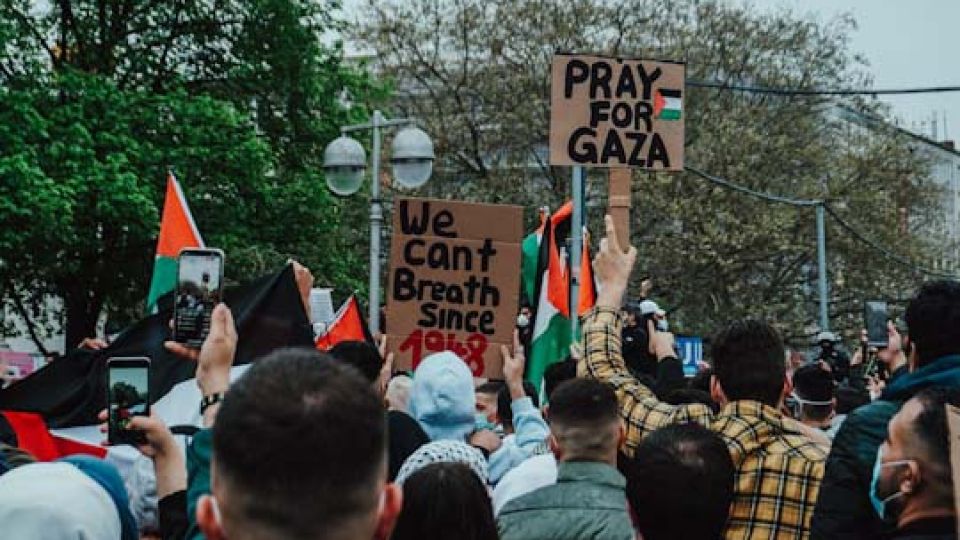April 30, 2024
JAKARTA – These past eight months, the world has been watching a genocide unfolding in the Gaza Strip not only with horror but also with frustration because no one force, not even the United Nations, could stop Israel from killing tens of thousands of innocent people, including women and children.
Watching from Jakarta, it is even more frustrating that our government has had little impact in influencing the course of the war, although not necessarily for lack of trying. The public at home and many around the world expect more from Indonesia, now widely recognized with the credentials of a middle power.
The Gaza war is putting Indonesia’s independent and active foreign policy to the test. While we have shown to be quite independent in approaching the Israel-Palestinian conflict, we could certainly be more active, and hopefully influential, particularly in Gaza.
Lest our own diplomats forget, Indonesia is the fourth most populous nation on earth, the third-largest democracy in the world, the largest democracy among Muslim-majority countries, a rapidly growing economy and it has an impeccable diplomatic track record in promoting peace and stability in Southeast Asia and the wider Indo-Pacific region.
Now, as a middle power with all the leverages that come with this status, we should put the “independent and active” foreign policy doctrine beyond our immediate region, including in the Middle East and the ongoing conflict in Gaza.
Sadly, we are falling short of expectations.
Indonesia has been a consistent staunch supporter of the Palestinian people’s quest for their own independent nation, becoming among the first countries that immediately recognized the state of Palestine when it was declared in 1998.
The strong affinity toward the Palestinian people is not grounded only in the shared religion, both Islam and Christianity, but it is also historic. In 1955, barely a decade after its own independence, Indonesia hosted the Asia-Africa Conference that gave inspiration to other nations in the two continents to fight for their independence and free themselves from the shackles of European colonialism.
The Bandung conference, named after the West Java town that hosted it, came out with a set of 10 bold principles, including calling for respect for human rights, sovereignty and equality.
One country has remained under occupation to this day: Palestine. Indonesia owes it to the people to help secure their independence.
Despite entreaties from Israel and its allies including the United States, Indonesia has withheld giving recognition to the Jewish state, and categorically stated that it would open diplomatic relations only after the establishment of an independent Palestinian state under the “two-state solution”. In other words, it is prepared to recognize Israel, but not just yet.
The absence of diplomatic ties however has proven to be a big handicap that stops Indonesia from playing a more active role in the search for a solution to the Israeli-Palestinian conflict, including the Gaza war.
The absence of a formal communication channel with Israel rules it out from playing a mediating role. Other Muslim-majority countries that have ties with Israel, including Turkey, Egypt and Jordan, are in a much better position to influence the course of the Gaza war by putting pressure on the Jewish state.
But even with this limitation, Indonesia could still be more active in the search for solutions, and as a middle power, it should be seen to be taking more initiatives.
Take the example of South Africa, which led the campaign to get the International Court of Justice to investigate allegations of genocide by Israel in Gaza. The horrors of the apartheid system and brutal occupation remain vivid in the minds of many South African people and the images and videos from Gaza touched them to act.
Most Indonesians alive today never experienced the brutal Dutch colonial era or the Japanese military occupation before independence in 1945. But this is no excuse for the government not to take a stronger stand against Israeli occupation that has lasted for too long.
It would be good to see Indonesia applying the independent and active foreign policy doctrine more thoroughly in the Middle East, including in the Palestinian-Israeli conflict. Even with the absence of a mediating role, Indonesia should be seen championing the independent Palestinian state and full membership of the United Nations.
If there is a silver lining to the horrific Gaza genocide it is that more and more countries are planning to recognize the Palestinian state, which would surely help put pressure on Israel to concede and accept the two-state solution. Spain and Ireland are leading European countries in contemplating giving this recognition.
Currently, some 140 of the 193 members of the United Nations already recognize Palestine as a state, or more than two-thirds, which should be enough if a resolution is put to a vote in the General Assembly. However, the final decision on whether to grant full membership is in the hands of the Security Council.
A Council resolution this month to give full membership to Palestine, which currently holds a permanent observer status, had the support of 12 members, including three permanent members with veto rights China, Russia and France, two abstained including the veto-carrying United Kingdom, but the United States vetoed it.
We’re not there yet, but we are getting closer. However, this situation has set the stage for Indonesia to apply its active and independent foreign policy doctrine in the Gaza war. The Indonesian and world public are waiting.


